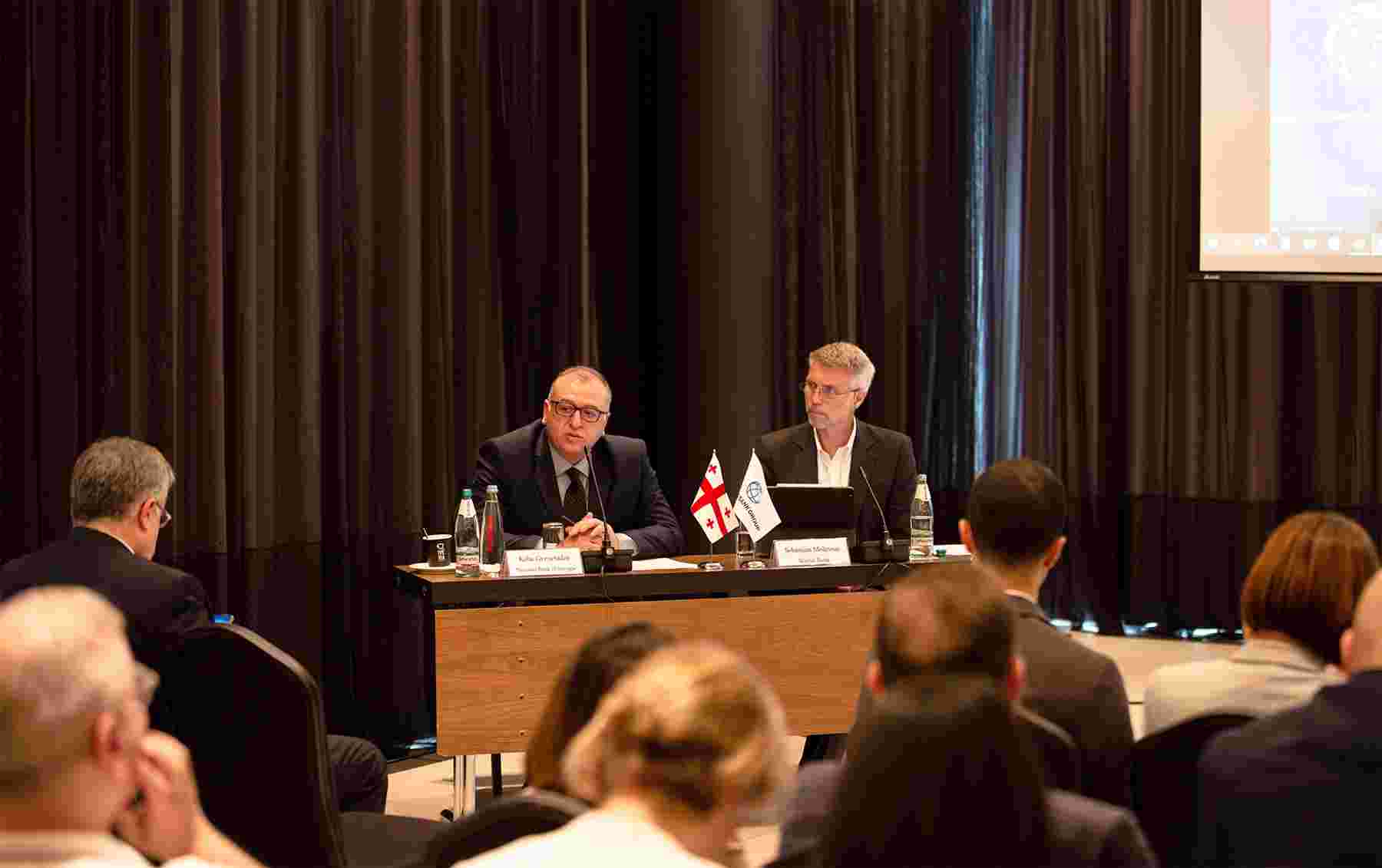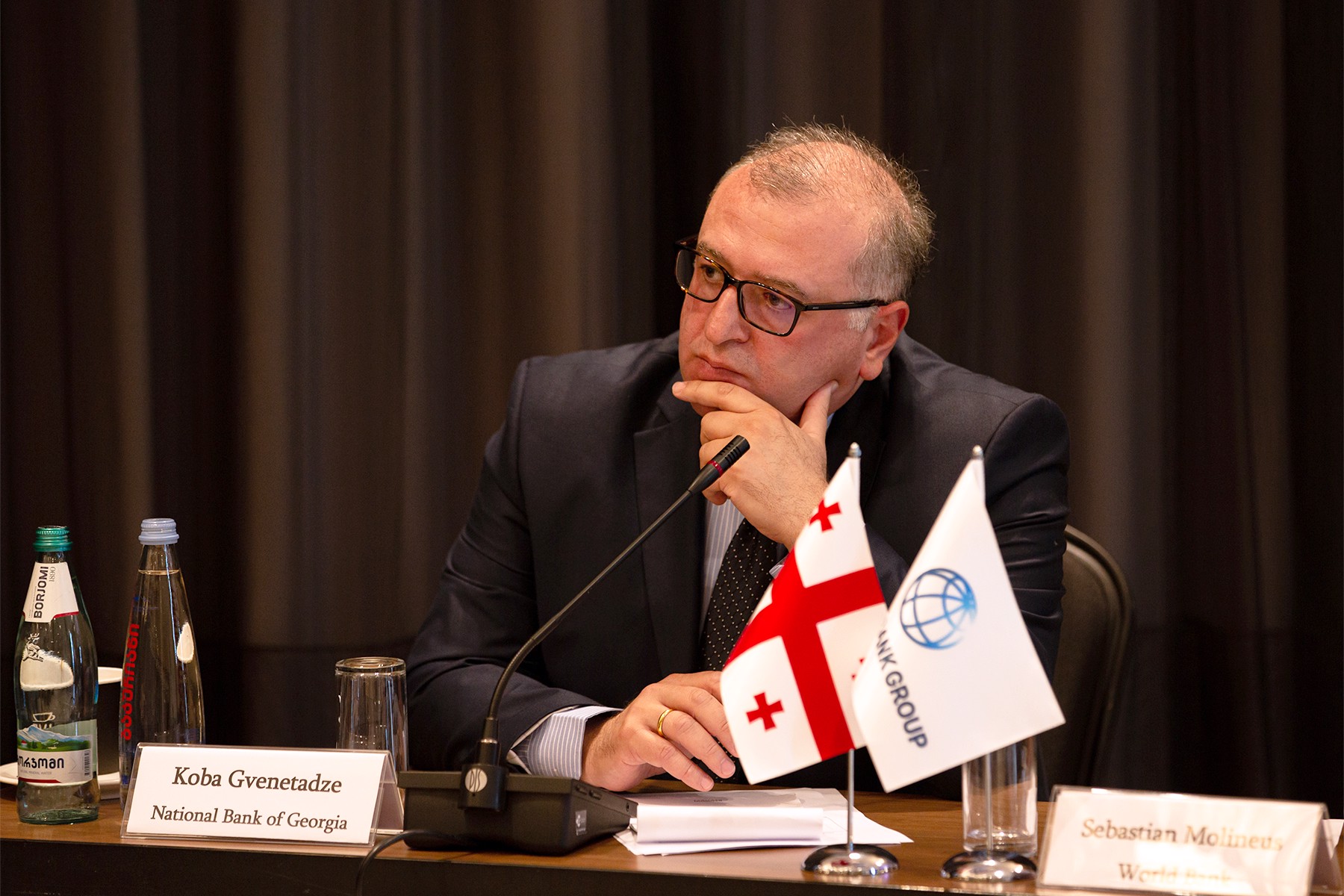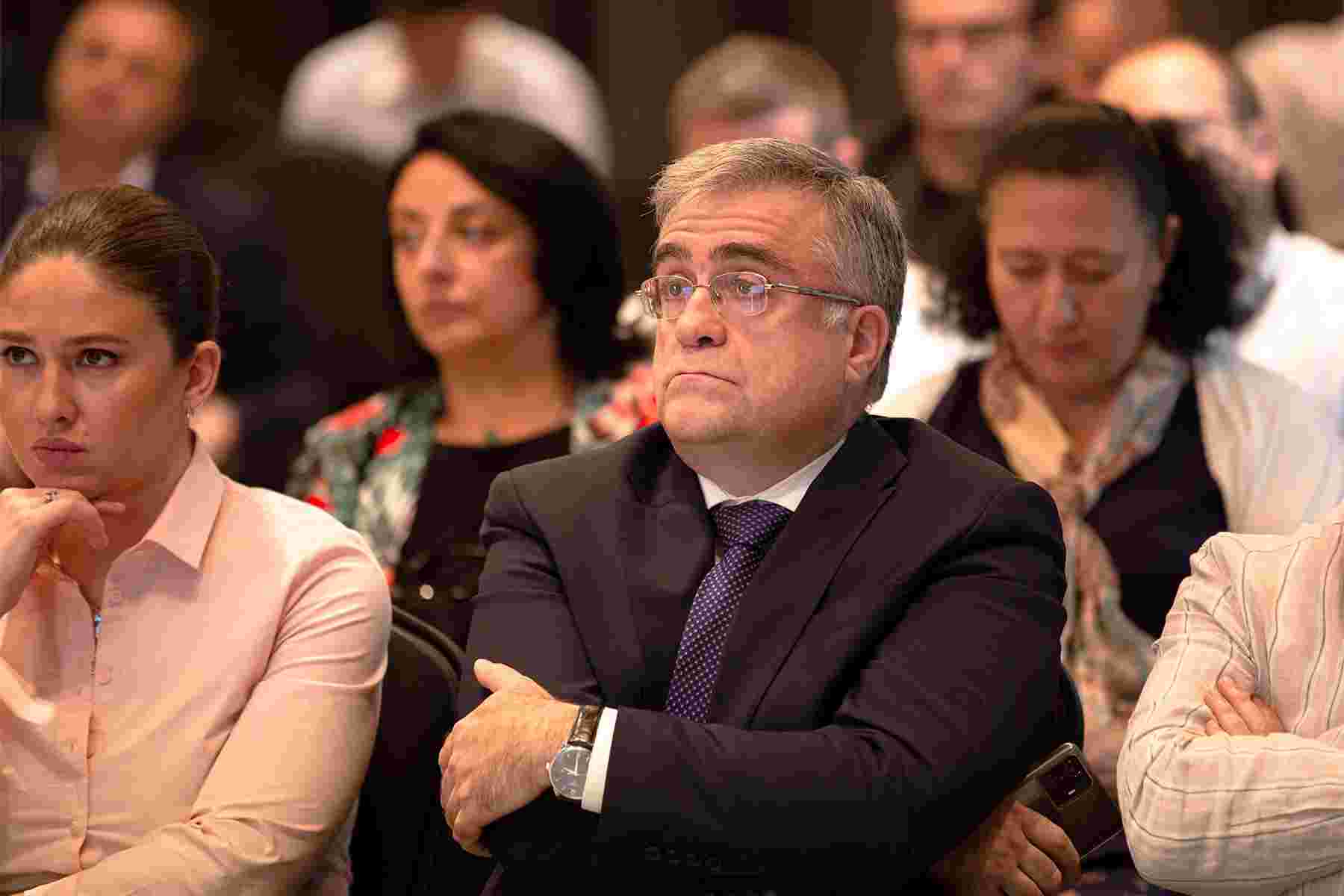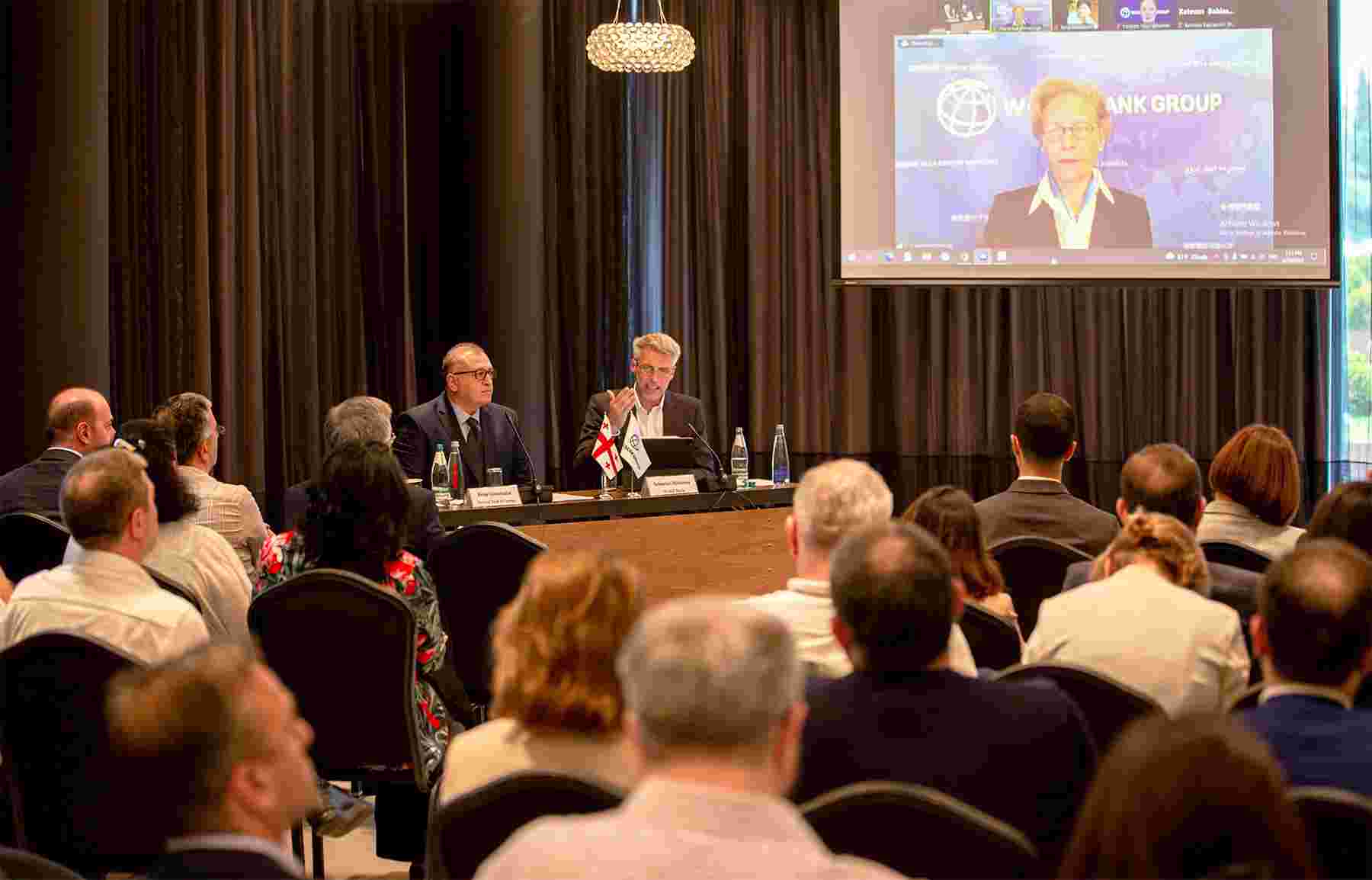
Koba Gvenetadze – National Bank has taken decisive and timely actions in response to the Global Challenges throughout the world
The National Bank of Georgia together with World Bank hosted an event to discuss the World Bank’s 2022 report "lobal Economic Prospects" and the views of the NBG. Koba Gvenetadze participated in the discussion, spoke in detail about the challenges in the region, and pinpointed the importance of the global challenge – inflation.
"We realize that high inflation poses a significant problem in the developed countries as well. Today, we are facing two crises – the pandemic and the war. For the first time throughout many years, inflation has become an obvious threat for numerous countries. Georgia being a small, open economy is facing multiple challenges simultaneously, ultimately resulting in the high prices. For us, it is vital that our citizens understand – the NBG’s highly professional team has taken decisive and timely actions in response to the global challenges that the world in general faces today. The NBG has and will always use all the tools at our disposal to mitigate the burden the public bears today. Due to these actions - and this has been confirmed by many international organizations - we have avoided a worse situation", - stated Koba Gvenetadze.

"I am pleased to be here today to present World Bank’s global economic prospects report, in event we are jointly organizing with the national bank of Georgia. Unfortunately, as people know, the global economy is going through some very difficult time. We project that the growth will decline from about 4.1% to 2.9% this current year. This decline in growth is mainly driven by high inflation, coupled with of course tightening of the monetary policy situation, rupturing of the global supply chains and of course amplified by the current war in Ukraine and sanctions regime against Russia. With that said, there is some good news. Georgian economy has shown great amount of resilience. We anticipate that the Georgian economy will grow by about 5.5% and possibly, even higher, that is an upgrade from our initial projection of about 2.5%", - stated Sebastian Molineus, World Bank Regional Director for the South Caucasus.
The June Global Economic Prospects report offers the first systematic assessment of how current global economic conditions compare with the stagflation of the 1970s—with a particular emphasis on how stagflation could affect emerging market and developing economies. The recovery from the stagflation of the 1970s required steep increases in interest rates in major advanced economies, which played a prominent role in triggering a string of financial crises in emerging market and developing economies.
The report also offers fresh insights on how the war’s effects on energy markets are clouding the global growth outlook. The war in Ukraine has led to a surge in prices across a wide range of energy-related commodities. Higher energy prices will lower real incomes, raise production costs, tighten financial conditions, and constrain macroeconomic policy especially in energy-importing countries.
The Global Economic Prospects report also discusses Georgia’s economic situation and different indicators:
- The Georgian economy has shown resilience to the economic shock induced by the Russian invasion of Ukraine so far, with the growth forecast for 2022 upgraded to 5.5 percent from 2.5 percent forecast in March. The resilience is driven by the strength of the services sector, particularly in tourism, with a strong recovery in the year through May. The forecast is for a continued recovery in 2023 and 2024 with growth easing towards potential at 5-5.5 percent.
- Inflationary pressures are rising, with annual inflation at double-digits through the year through May, with 74 percent of the increase driven by higher food and fuel prices.
- Risks to the baseline forecast remain elevated with key risks including further escalation or prolongation of the war in Ukraine and any spillover from the sanctions; rising inflationary pressures weighing on economic activity going forward and COVID-19 outbreaks, particularly in the context of new variants and low vaccination rates.
Koba Gvenetadze, the Governor of the National Bank of Georgia and Sebastian Molineus, World Bank Regional Director for the South Caucasus held a discussion and responded to the questions of economists, finance experts, representatives from the government, non-governmental sector, and academic circle.
The Report is available on the following link.
20 June, 2022
Photogallery
11


